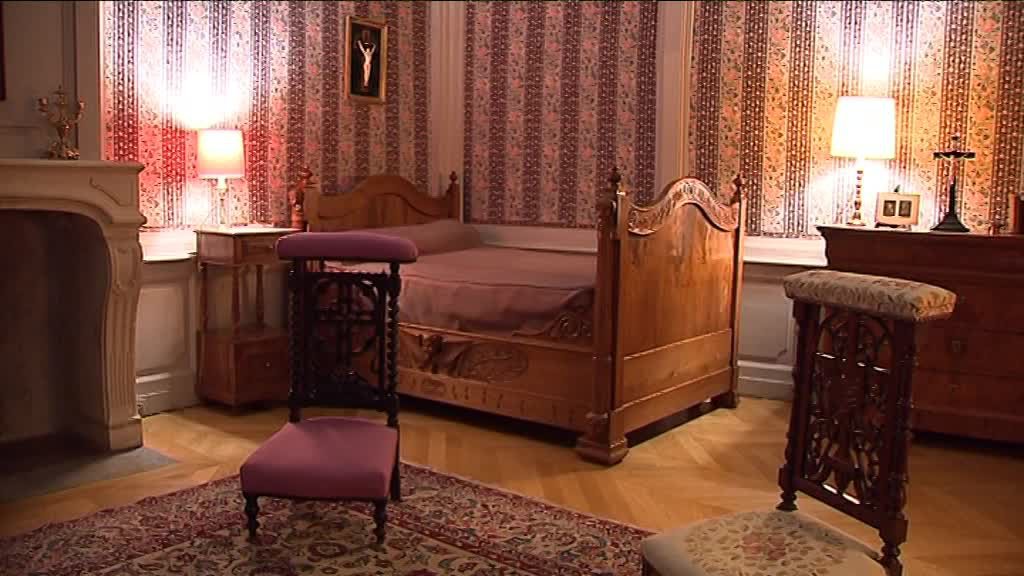
This French laywoman used pennies to help the missions … exponentially
Venerable Pauline-Marie Jaricot figured that if each of her friends would find 10 friends to donate a penny a week, the Gospel would reach the ends of the Earth.
Pope Francis is asking the whole Church to remember that we are fundamentally and essentially a missionary Church, just as Christ asked us to be: “Go into the whole world and preach the Gospel to everyone,” he said before ascending into Heaven.
In 20219, the month of October was dedicated to a renewal of this awareness, in celebration of the 100th anniversary of the Apostolic Letter Maximum Illud,written by Pope Benedict XV and released on November 30, 1919.
And in the context of this celebration, we turn to one of the protagonists of missionary work in the last few centuries: a French laywoman named Pauline-Marie Jaricot. To her we owe the oldest of the Pontifical Mission Societies, The Society for the Propagation of the Faith.
Jaricot was born in 1799, the youngest of seven children of a well-to-do French family; her father owned a silk factory. Though she lived a life of elegance and society, at age 17 she decided to consecrate herself to God and took a vow of chastity.
Between 1819 and 1820, Pauline-Marie decided that she must help the work of missionaries. Thanks to her brother, Philéas, who was preparing to be a missionary to China, Pauline knew of the critical needs of the missions. So with some of her friends and relatives, she started a collection of “le sou de Pauline” (Pauline’s pennies).
Her plan was to form groups of 10 people with each member of the group forming another group of 10 and so on, and each one of the groups giving just a penny a week for the missions.
From these simple beginnings arose the Society of the Propagation of the Faith. The Society was born officially on May 3, 1822, in Lyon with the name: Association of the Propagation of the Faith. Exactly a century later, on May 3, 1922, Pope Pius XI gave it the title of “Pontifical.” Its central offices were transferred to Rome to collaborate better with the Congregation for the Evangelization of People in promoting the missionary spirit and activity.
Jaricot went on to form the Living Rosary Association (again calling on the principle of each one giving a bit in order to form a larger whole). The association works on the idea that a group of 15 people (now 20, with the addition of the Luminous Mysteries) commit to praying just one specific decade of the Rosary, and thus together have prayed the whole Rosary each day.
Jaricot is remembered for another great effort: an attempt to implement a lived-out model of the Christian spirit. She purchased a factory, with a building beside the plant that served as apartments for the workers and their families, and a school and chapel close by. Unfortunately, however, those she chose to manage the facilities were dishonest, and Jaricot ended in bankruptcy. She spent the end of her life in great poverty and died in 1862.
She was declared Venerable in 1963 by Pope John XXIII.
Here is an excerpt of a prayer she wrote, which was found after her death:
My hope is in Jesus, my only treasure is the Cross. I will bless the Lord at all times and His praise shall be always in my mouth. I adore the will of my God. What does it matter to me, O beloved and lovable will of God, if Thou takest from me all earthly goods, reputation, honor, health, and life; what does it matter that Thou maketh me descend into the depth of humiliations. What does it matter … if I find the hidden fire of Thy heavenly love? How happy I should be if I could die for Thee and for my fellow creatures. Jesus, Priest and Victim, I unite the sacrifice of my life and the cross I carry to Thy Blood shed for me. I shelter myself in Thy Wounds and I expect all strength from Thee. My heart is ready, O Lord, my heart is ready. I only wish to do all for Thy greater glory. I rely upon Thy strength when the supreme moment comes and not upon my own. I have put my hopes in Thy mercy.
Support her work here.
https://aleteia.org/2019/09/28/this-french-laywoman-used-pennies-to-help-the-missions-exponentially/